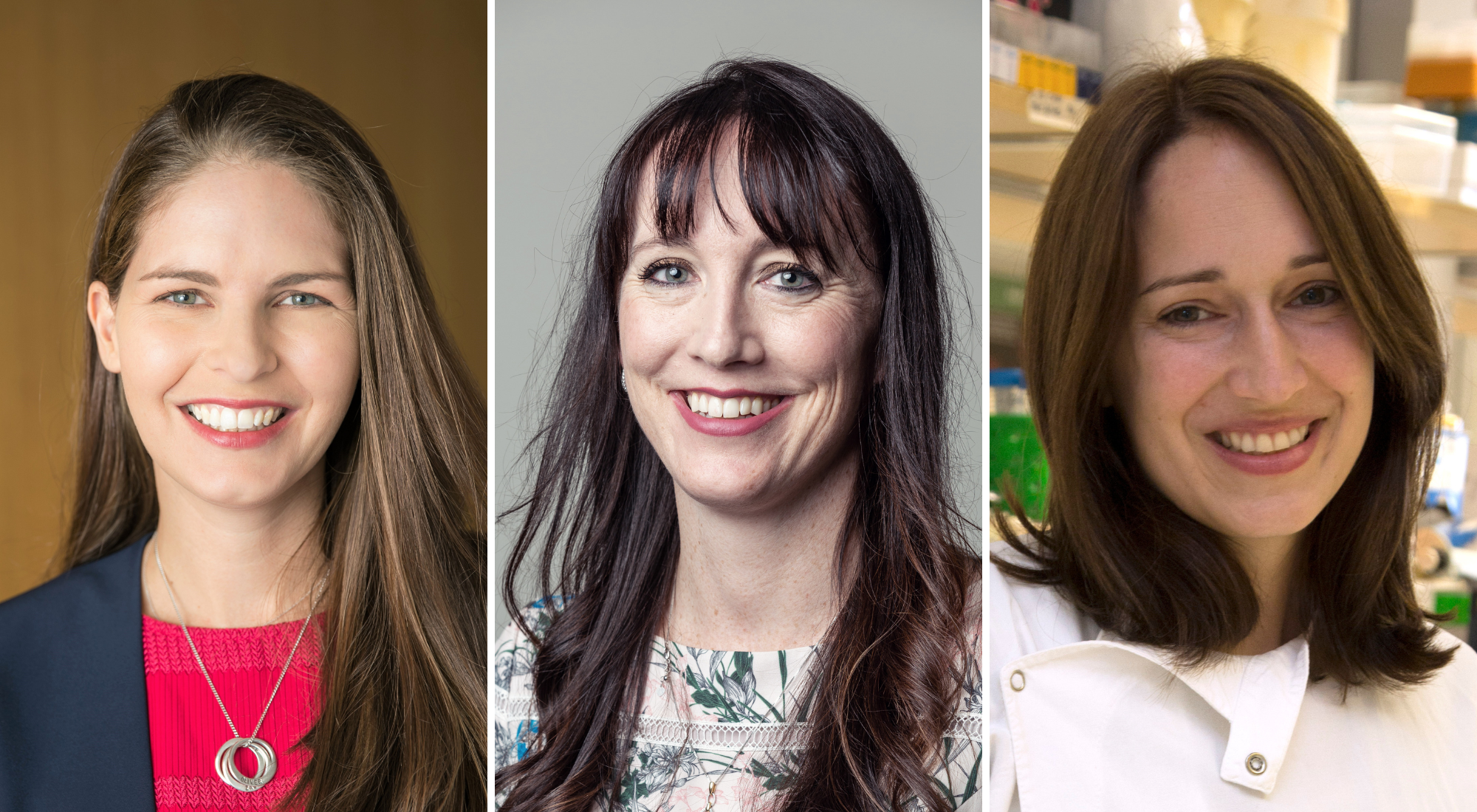20 projects for 20 years of research funding: Survivorship

The Kids’ Cancer Project began funding research in 2005. 20 years have passed since that day, with $76 million in total investment and an 87% survival rate to show for it.
As Australia’s largest independent childhood cancer charity, The Kids’ Cancer Project endeavours to fund research projects across the entirety of the cancer continuum, from making discoveries about cancers, to facilitating clinical trials and supporting researchers, kids with cancer and families from pre-diagnosis to survivorship.
The Kids’ Cancer Project prides itself on seed funding projects from their very genesis, providing the initial funds required to see projects become fully-fledged, government-funded projects that become standards of care across Australia.
Coinciding with the two-decade anniversary, we’ve picked out the 20 most significant projects from those 20 years.
This first article focuses on survivorship care, post-treatment programs that prioritise quality of life. Survivorship refers to the point of entering remission until end of life.
Survivors are at higher risk of both physical and mental health problems down the track, often classed as ‘late effects’. Until recently, survivorship care has rarely been developed for paediatric cancer patients.
The Kids’ Cancer Project funds many experts in this space and prides itself on ensuring that childhood cancer patients not only survive but thrive.
Read more about our four most significant survivorship programs of the past 20 years below!
Engage – Prof. Clare Wakefield, Dr Jordana McLoone & Dr Christina Signorelli
UNSW
$201,014
July 2015
90% of childhood cancer survivors will develop at least one serious illness due to treatments administered following diagnosis, so it is important that survivors understand how to communicate their issues.
The Re-engage program began as a pilot study after it was discovered that more than half of Australian childhood cancer survivors were disengaging from the care they needed.
Initially led by Prof Claire Wakefield and now overseen by Dr Jordana McLoone and Dr Christina Signorelli, the study sought to equip survivors with the tools they needed to communicate effectively with medical health professionals, while making them aware of the potential complications that could arise in later life due to outdated cancer treatments.
Engage is proven to improve survivors’ confidence in managing their own needs and improve aspects of their mental health and wellbeing.
“I was totally unprepared to manage my complex health requirements. But with Re-engage, I was able to transition my health communications to become a well-informed patient with the knowledge and experience to discuss my issues and be heard,” says a two-time adolescent cancer survivor, speaking anonymously.
The initial Engage program evolved into a number of other similar survivorship programs to address a lack of access for paediatric cancer survivors in regional areas, adolescents and young adults, paediatric brain cancer and the Re-engage, which featured in our Spring Newsletter.
The findings of Engage were published in eight publications and presented at four national conferences. Most importantly, the program was the subject of later funding of approximately $5.8 million via the NHMRC Early Career Fellowship, and the Cancer Institute NSW-Early Career Fellowship and the Federal Government’s Medical Research Future Fund.
To read more about Re-engage, click here.
A monthly donation to The Kids’ Cancer Project allows you to build long-term impact for kids with cancer.
When you commit to survival with a monthly gift of just $22, you will ensure we can continue to fund bold survivorship projects.
Sign up today.
Priority-P – Prof. Rachel Conyers
Murdoch Institute
$286,502
July 2022
A/Prof Rachel Conyers and her team’s research aims to identify potential risks of cancer treatment for children via genetic testing. These tests result in tailored approaches to medicine to minimise issues of late effects.
Priority-P, a study led by A/Prof Rachel Conyers and PhD student Claire Moore at Melbourne’s Murdoch Institute, sought to offer pharmacogenetic testing to childhood cancer patients to determine their susceptibility to life-altering issues worsened by the likes of chemotherapy and radiation. These issues included physical and mental health problems, ineffective treatments and even secondary cancers.
Approximately 90% of patients enrolled within the study had high-risk variants identified, with all those enrolled given personalised prescriptions to ensure toxicity would not occur.
Priority-P, later renamed Marvel, received a total of $6 million in grant funding following The Kids’ Cancer Project’s initial seed funding which evolved the program to become a trial that could enrol participants both nationally, while additionally combining results of the study with the adult cancer sector.
A parallel study, GENIE, run by Tayla Stenta in Conyers Team, aimed to reduce infertility caused by toxicity in childhood cancer survivors. They worked to create risk predictors of long-term infertility in paediatric cancer patients undergoing therapy.
Collaborating with University of Melbourne, The Royal Children's Hospital and Murdoch Children’s Research Institute, the retrospective study was informed by genetic markers of low follicle density, a key indication of whether toxicity from cancer treatments will cause infertility in later life.
The findings of these pharmacogenomic studies have been presented at 17 conferences and published in eight peer-reviewed journals. Leveraged funds include a $6 million, ongoing grant from the MRFF including the 2025 Genomics Health Future Mission Award to create a national prospective registry and biobank for identifying adverse drug reactions in children with a cancer diagnosis.
Developing treatments for vincristine-induced neuropathy –Prof. Irina Vetter
University of Queensland
$554,120
July 2019
Vincristine is a chemotherapy drug utilised to treat many childhood cancers, but it can lead to nerve damage, or neuropathy, that can lead to numbness, tingling, and muscle weakness.
There is a lack of understanding of chemotherapy-based neuropathy which has led to a gap in effective treatment strategies, with dose capping the only technique used in the clinic. The Brisbane-based Dr Vetter and her team have sought to close that gap.
Dr Vetter’s Brisbane-based lab, alongside two national collaborators – the Children’s Cancer Institute and Mater Research Institute – discovered that the nerve damage can be countered with an existing rheumatoid arthritis drug!
Building on Vetter’s work in the project mentioned above, the $298,000 Reducing long-term side-effects of chemotherapy in cancer survivors project supported deeper investigation into the wider capabilities of these treatments, and the potential to apply them to other chemotherapeutic drugs to reduce side effects.
This study was key for clinical trial dosage, the timing of when the drugs would be administered and identifying patient populations that would benefit. While the findings have not yet reached the clinic, Vetter’s team have endeavoured to make key learnings and generate models to study diseases which have become a powerful resource for the research community.
The findings of both studies were presented at 13 conferences in total and published within three journals. Dr Vetter’s team additionally benefitted from over $870,000 in additional funding following The Kids’ Cancer Project’s seed grants, with investments made by the National Health and Medical Research Council (NHMRC) and the Children’s Hospital Foundation, with multiple grants having been submitted throughout 2025.
Both of Dr Vetter's projects have opened the door for collaborations with an international industry partner, as well as several national and international academic collaborations, including with the University of Texas in Dallas and the University of Melbourne.
We’ll see you next week for the second instalment of our ‘20 for 20’ series!
Want to know more about childhood cancer and research? Head to our brand-new Research Hub!
Research Hub

